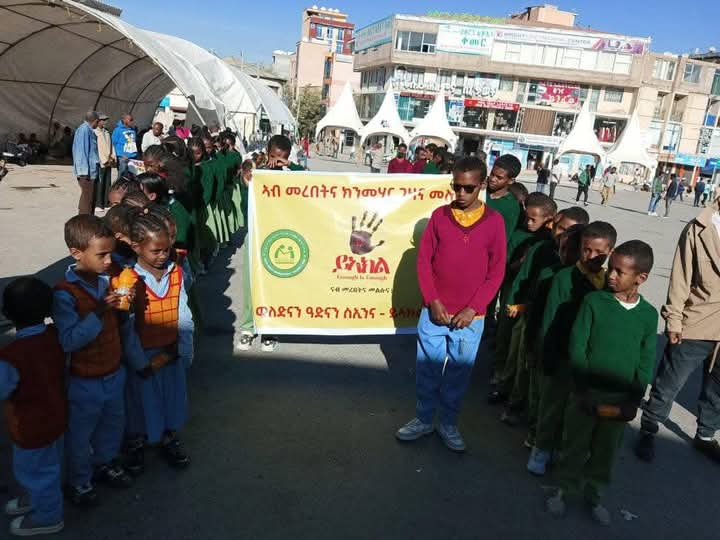Mekelle, Tigray -January 14, 2025(Tigray Herald)
Overcoming Dysfunctional Legacies: Lessons for Post-Genocide Tigray from Post-Communist Romania
- Introduction
The Tigray region of Ethiopia faces a monumental challenge in the aftermath of a devastating war described by many as genocidal in its scale and impact. This conflict has left Tigray grappling with profound political, social, and economic crises, including the collapse of governance structures, pervasive societal distrust, and severe humanitarian needs.
This document examines Romania’s efforts to overcome its dysfunctional communist legacy after 1989 as a source of critical lessons. By analyzing Romania’s transition from authoritarianism to democracy, it provides a roadmap for Tigray to address its own legacy of authoritarian rule under the Tigray People’s Liberation Front (TPLF) and navigate its post-genocide political transformation.
—
2. Historical Context
2.1. Romania’s Pre-Communist and Communist Era
Under communist rule, Romania was marked by a repressive state apparatus that dismantled traditional institutions, suppressed dissent, and controlled every aspect of life. The Communist Party prioritized the regime’s survival over citizens’ well-being, leaving behind a society deeply fragmented and dysfunctional.
Key Features of Communist Romania:
State Surveillance:
The Securitate secret police created a pervasive climate of fear and suspicion.
Economic Collapse: Centralized economic policies led to widespread poverty, inefficiency, and resource shortages.
Psychological Impact:
Citizens were conditioned to distrust institutions and each other, a legacy that persisted long after the regime’s fall.
2.2. Tigray Under TPLF Rule
The TPLF rose to power in 1991 as part of the Ethiopian People’s Revolutionary Democratic Front (EPRDF), dominating Ethiopian politics for nearly three decades.
Despite its claims of federalism, the TPLF operated as an authoritarian force in Tigray, stifling dissent and maintaining tight political and economic control.
Key Features of TPLF Governance in Tigray:
Centralized Power: Political decisions were concentrated within the TPLF, leaving little room for opposition or alternative viewpoints.
Clientelism: Economic opportunities were distributed based on party loyalty, fostering inequality and resentment. Repression of Dissent: Surveillance and suppression of critics mirrored Romania’s communist-era tactics, further entrenching distrust.
2.3. The Post-Genocide Crisis in Tigray
The war in Tigray has left the region devastated. Millions have been displaced, infrastructure destroyed, and institutions paralyzed. Genocide-like atrocities committed during the conflict have deepened societal mistrust and created significant barriers to recovery and reconciliation. Challenges in Post-Genocide Tigray: Institutional Collapse: Governance structures need to be rebuilt from the ground up. Humanitarian Crisis: Millions require urgent assistance for food, healthcare, and shelter. Ethnic Polarization: The conflict has exacerbated divisions within Tigray and between Tigray and other Ethiopian regions.
—
- Dysfunctional Society Syndrome:
A Comparative Framework
3.1. Psychological Scars of Authoritarian Rule Both Romania and Tigray share the psychological scars of living under repressive regimes. In Romania, decades of fear and mistrust persisted into the post-communist period, delaying societal recovery. In Tigray, the combination of TPLF authoritarianism and war trauma has left the population deeply mistrustful of governance and vulnerable to manipulation.
3.2. Corruption and the Erosion of Trust Corruption was endemic in both Romania’s communist regime and TPLF governance in Tigray. Romania: After 1989, corruption persisted as former elites manipulated reforms to maintain power. Tigray: Under the TPLF, economic and political resources were concentrated among party elites, deepening inequality and resentment.
—
4. Post-Genocide Transformation: Learning from Romania
4.1. Political Inclusivity and Decentralization Romania’s Struggles: Post-communist Romania faced the dominance of neo-communist elites who resisted meaningful reform. Corruption and clientelism hindered the development of political inclusivity. Lessons for Tigray: Inclusive Governance: Establish political systems that represent all segments of society, including marginalized groups. Decentralization: Empower local governance to reflect community needs, reducing the risk of centralized authoritarianism re-emerging.
4.2. Civil Society as a Pillar of Transformation Romania’s Recovery: Civil society organizations played a critical role in Romania’s democratization by fostering civic engagement and rebuilding trust among citizens. Recommendations for Tigray: Support grassroots organizations that promote reconciliation and deliver essential services to affected communities. Rebuild trust by involving citizens in decision-making processes and promoting transparency in governance. — 5. Addressing Identity and Historical Baggage
5.1. From Victimhood to Resilience Romania:
Romania’s historical narrative emphasized victimhood, portraying the nation as a perpetual victim of external powers. This mindset hindered progress and reinforced fatalism. Tigray: Tigray’s identity as a historically besieged region risks entrenching divisions and mistrust. Moving Forward: Promote narratives of resilience and unity, emphasizing Tigray’s ability to overcome adversity and contribute to a peaceful Horn of Africa.
—
6. Path Forward for Tigray
6.1. Transitional Justice and Reconciliation Truth-Telling Mechanisms:
Establish forums for survivors of violence to share their experiences and seek justice. Accountability: Prosecute perpetrators of war crimes while promoting restorative justice to heal communities.
6.2. Economic Recovery Equitable Development:
Invest in infrastructure, education, and healthcare to address disparities and rebuild livelihoods. Entrepreneurship: Promote small businesses and local enterprises to stimulate economic growth.
6.3. Leveraging International Support International Accountability:
Work with international organizations to ensure transparency and fairness in governance. Humanitarian Aid: Secure global support to address urgent humanitarian needs.
—
7. Conclusion
The parallels between Romania’s post-communist transition and Tigray’s post-genocide crisis highlight critical lessons for rebuilding governance, fostering societal trust, and promoting recovery. The failures of the TPLF’s leadership, much like Romania’s communist regime, demonstrate the dangers of prioritizing power over people. However, Romania’s experiences also reveal a pathway to overcoming these challenges. By embracing inclusivity, transparency, and accountability, Tigray can navigate a transformative recovery and build a future rooted in unity and resilience. Bold leadership, grassroots engagement, and sustained commitment to addressing past failures are essential to ensuring lasting peace and prosperity in Tigray and beyond.
Prepared by Tigray Media Watch Digital Intelligence Monitoring Group.
Mekelle, Tigray January 14 2025




